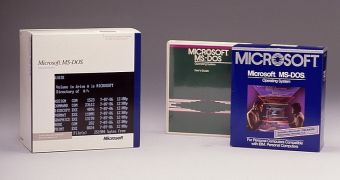Microsoft has just announced that sources for two old’n’popular products, namely MS-DOS and Word of Windows, both launched during the ‘80s, are now available free of charge as part of a project with the Computer History Museum.
The museum will thus make source code for both MS DOS 1.1 and 2.0 and Microsoft Word for Windows 1.1a available for anyone, in an attempt to “help future generations of technologies better understand the roots of personal computing.”
If you’re too young to remember how these two products got to see daylight, Microsoft has published a small piece of history today in a blog post specifically rolled out to let you know that the source code is now available at no cost:
“In 1980, IBM approached Microsoft to work on a project code-named ‘Chess.’ What followed was a significant milestone in the history of the personal computer. Microsoft, at the time, provided the BASIC language interpreter for IBM. However, they had other plans and asked Microsoft to create an operating system. Without their own on hand, Microsoft licensed an operating system from Seattle Computer Products which would become the foundation for PC-DOS and MS-DOS.”
The DOS version of Microsoft Word was launched in 1983, but as the company said today, its usage only skyrocketed in 1989, posting a remarkable growth in the next four years.
At that time, according to Microsoft figures, Word accounted for no less than half of the revenues of the word processing market which, let’s be honest, wasn’t quite an overwhelming side of the industry as it is today when plenty of options are available for users.
While this is clearly good news for those who are trying to find out more information about the way the Windows operating system and the Office productivity suite came to be, we’re pretty sure that everyone would like to see Microsoft doing the same thing for products that are still commonly used these days, such as the very old Windows XP for example.
Of course, that’s not going to happen anytime soon, even though we all know that making Windows XP open source and letting the community improve it would be awesome, but Microsoft is still a business that needs to be profitable, so selling Windows is a priority. This means that users shouldn’t stay with Windows XP much longer and move to the company’s newest releases, such as Windows 8.1.

 14 DAY TRIAL //
14 DAY TRIAL //